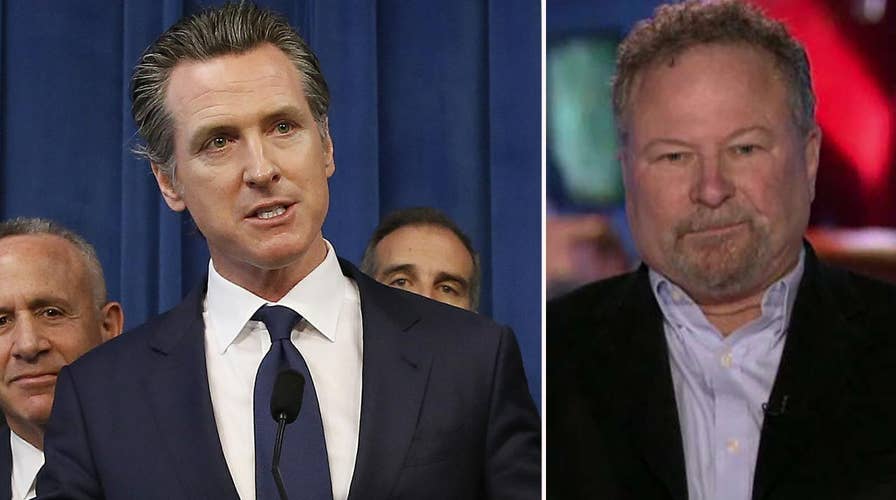'It's disgusting': Dad of man killed by illegal immigrant blasts Gov. Newsom's trip to Central America
Don Rosenberg, whose son was killed by an illegal immigrant driver in California, says Gov. Newsom is putting illegal immigrants over his own state.
California Gov. Gavin Newsom, in an apparent rebuke of President Trump, used his executive authority to pardon two immigrants who went to prison after facing convictions -- including for soliciting to commit murder and grand theft.
While his decision doesn't halt deportation proceedings, it removes the offense that prompted the decision to deport them. Newsom's office justified the decision as a way to help the pardoned -- many of whom were convicted before 2000 -- avoid "collateral consequences" of their convictions.
"By granting these pardons to people who are transforming their lives," a news release read, "the Governor is seeking to remove barriers to employment and public service, restore civic rights and responsibilities and prevent unjust collateral consequences of conviction."
Among the pardoned were two Cambodian refugees who came to the U.S. with families who were fleeing genocide in their home country.
One of the refugees, Hay Hov, was convicted in 2001 and served four years and three months in prison after facing convictions for soliciting to commit murder as well as participating in a criminal street gang. The other, Kang Hen, was convicted in 1999 and served a little over a year in prison, facing convictions for grand theft and robbery.
Newsom, a Democrat serving his first term, signed each of the pardons, noting that the individuals merited pardon after serving time and "good conduct in the community."
"By the laws of this state it is proper that I, as governor of the state of California, give testimony that, by completion of his sentence and good conduct in the community, Mr. Hov merits this pardon," he said for Hov's pardon.
CLICK HERE TO GET THE FOX NEWS APP
The other offenses included substance-related crimes, forgery and driving under the influence of alcohol and drugs.
Newsom's decision appeared to follow a pattern of California officials openly thwarting federal immigration enforcement. Since mid-2018, the administration has been embroiled in a lawsuit with the state over its laws limiting cooperation with federal immigration authorities.













































